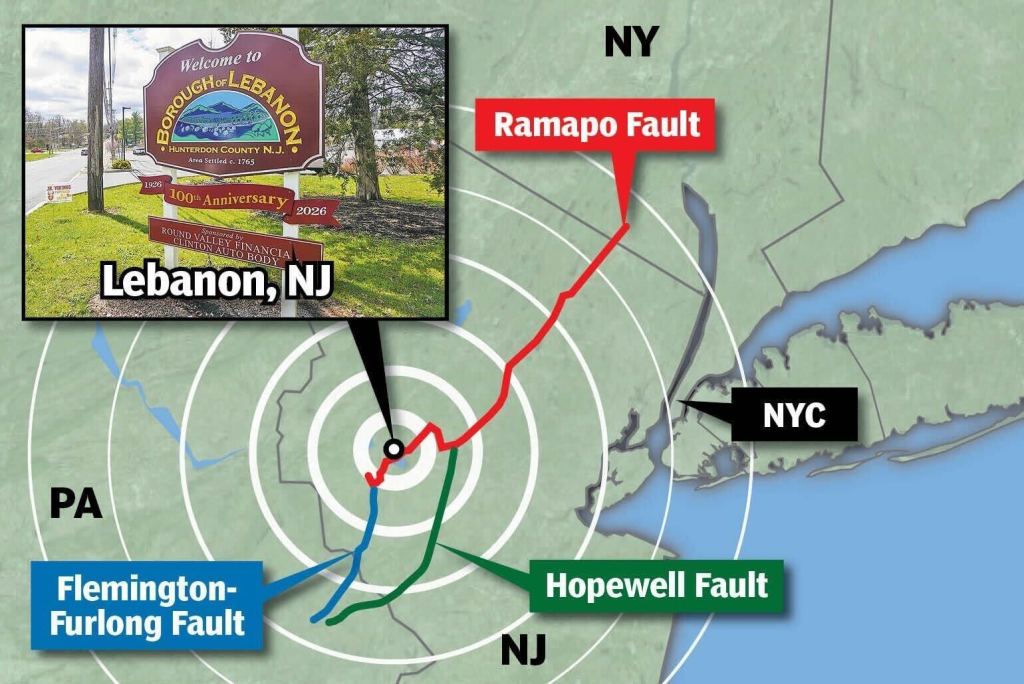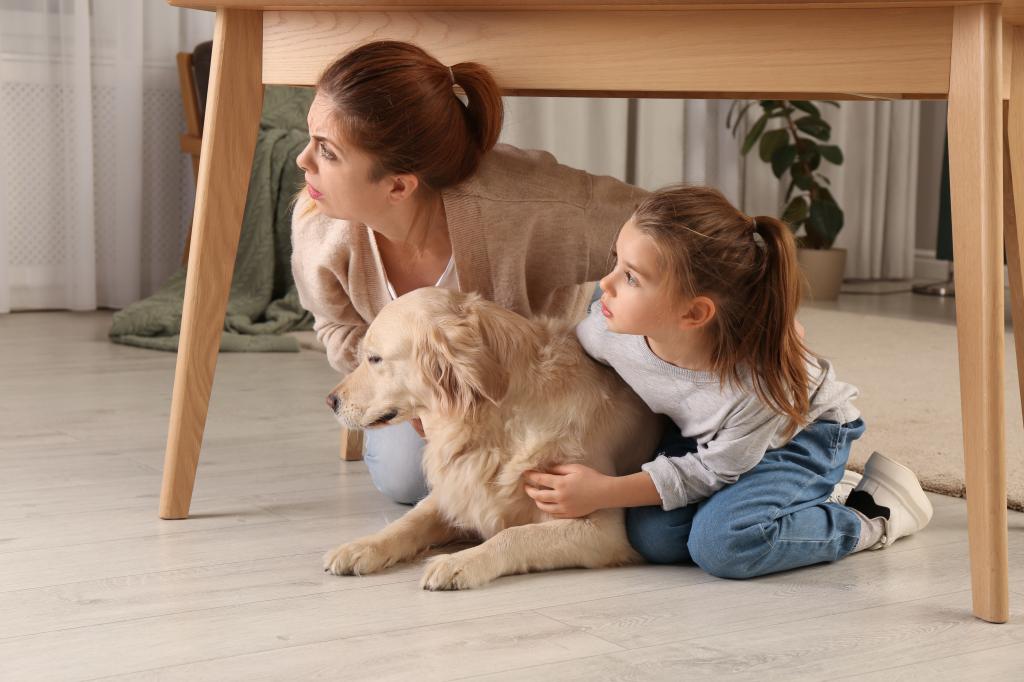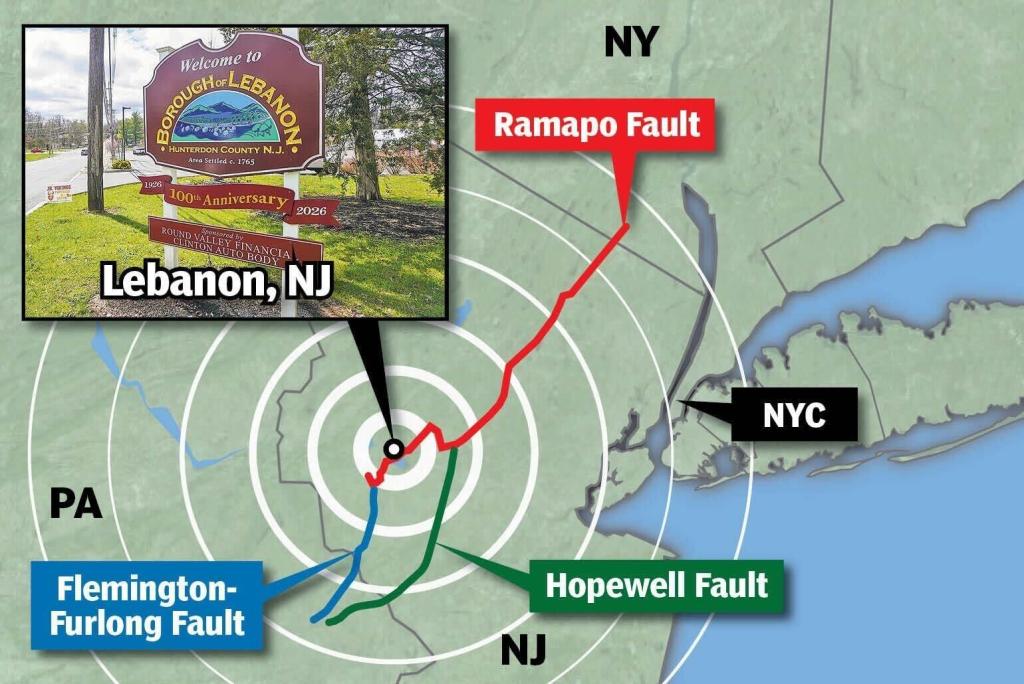How to keep your pets safe before, during and after an earthquake
Contact The Author
If Friday morning’s 4.8 earthquake surprised you, there’s a chance your furry friends were trying to warn you ahead of time.
It’s widely believed that pets are actually able to predict earthquakes — a phenomenon called Seismic Escape Response — and science has even suggested that animals can feel the Earth shift before humans do.
Some pets’ behavior could change minutes or even days prior to an earthquake, such as unprovoked anxiety, stress, pacing or increased activity. This could be linked to a dog’s ability to hear high-frequency sounds of rocks moving and breaking beneath the earth, according to Michelson Found Animals.
Despite their prescience, your pets are probably plenty scared — more than you are.
What do you do with your pet during an earthquake, how can you take care of them in the aftermath and how do you prepare for the future?
What to do with your pet during an earthquake
When an earthquake hits, humans know that the safest place is a doorframe and to drop, cover and hold on — but does the same apply to your pets?
It depends what kind of situation you’re in at the time the earth starts to shake.
If you’re outside walking your dog, drop, cover and hold on can still apply, according to Michelson Found Animals.
The organization suggests dropping to the ground yourself before you fall, Then, crawl to an open area that’s away from trees, power lines and buildings. Your dog will likely freak out and try to bolt, so hold onto the leash as tight as you can.
However, if your own safety is at risk, you might need to let the dog run for safety on its own. Luckily, animals are naturally good at seeking shelter, so you can look for your pet right after the shaking ends.
If you’re at home with your pet, the best bet is to let your animal run and find a place to hide on their own.
Cats in particular will refuse to be picked up, but dogs might let you. If you can hang on to your dog, drop to the ground while holding them and crawl under a table for safety.
If your pet is in a crate or carrier, they are safer inside there where they won’t be hit by falling debris. If it’s light enough, you can bring the carrier with you to safety.
How to help pets recover after an earthquake
After a disaster, your pets’ behavior might change — they can often become aggressive or defensive.
The American Red Cross advises that pet owners be aware of their furry friends’ wellbeing and keep a close eye on them to ensure their safety as well as the safety of other people and animals.
Be sure to keep pets in your “direct control” to keep them away from any hazards, such as damaged fences and gates — and particularly at the nose and paw level, such as debris, spilled chemicals, fertilizers and other substances that might not be dangerous to humans.
Pets might also become disoriented after a disaster, especially if it affected any scent markers that normally allow them to find their way around.
Wag! also suggests making sure you show a “calm and loving presence” to help them cope and show them lots of love and affection. Using familiar scented toys or bedding can also help them calm down.
If issues persist, consult with a vet.
How to prepare your pet for future natural disasters
The American Red Cross says the top tips for preparing to keep your pet safe include: analyzing the safety of your home, preparing an emergency kit and make an evacuation plan.
Emergency kits should be in an accessible place and stored in sturdy containers for ease of transportation.
Pet emergency kits should include:
- Sturdy leashes, harnesses and/or carriers that ensure they can’t escape
- Food, drinking water, bowls, cat litter/pan and, if needed, a can opener for canned food
- Medications and copies of medical records
- A first aid kit
- Current photos of you with your pet(s) in case they get lost
- Information on feeding schedules, medical conditions, behavior problems, and the name and number of your veterinarian
- Pet beds and toys, if easily transportable
Follow The Post’s coverage on the NYC and tri-state earthquake
If your home is not safe for you, it’s not safe for your pet either. Be sure to know what hotels nearby will allow pets, or which ones will waive their no-pet policy in an emergency. Keep a list of friends, relatives, boarding facilities, animal shelters or veterinarians that can care for your animals in an emergency.
Have your pets microchipped and registered should they escape during an earthquake — and make sure their collar is fitted and has a current identification tag.
Staying up-to-date with your pets’ vaccines is the best way to ensure they healthy in the aftermath where rotting debris can create a breeding ground for bacteria.

















